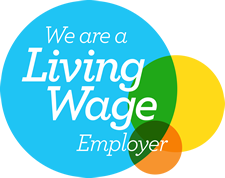
Insights
Helping not-for-profit organisations develop and sustain
the highest levels of employee and volunteer engagement

Insights
“Building a workforce fit for today and the future is a critical part of the success of every business. Understanding what skills you are going to need, how to build them yourself, or how to buy them in, is an essential role for HR professionals in every sector.” – Peter Reeve, CHRN
In October 2024, we were delighted to partner with CHRN and NCVO to run a survey of HR professionals across the charity sector. The survey aimed to understand:
This blog pulls out a few highlights, but we’d encourage you to download the report and explore the data for yourself. How does it tally with your experience?
70% of organisations have fewer than 10% of their employees aged 18-24 – behind the national average (ONS, Jul-24). For about half of those, fewer than 5% of their employees are aged 18-24.
The demographics of the workforce in the economy as a whole are changing, and five generations are converging in the workplace. Having younger people as part of an organisation’s workforce is key to developing a pipeline, especially for difficult-to-fill roles. It is essential for organisations looking to future-proof.
Younger people bring new skills and perspectives, as well as new demands and different expectations for their workplace.
Are not-for-profits doing enough to attract young people? Are they offering the right roles, compensation and benefits?
 Skills Gaps
Skills GapsTwo thirds of organisations said they have identified areas where they have skills gaps. What gaps are the other third of organisations missing? And how can organisations support a sector-wide approach to overcoming skills gaps?
62% are developing digital skills in their workforce. Supporting digital skill development is almost twice as common in large organisations as in small ones.
As digital skills become more important – AI most notably – smaller charities might need to devote more time and resources into development to keep pace. AI has the potential to have an outsized impact, especially for smaller organisations.
Only 28% of organisations said they have a process for identifying talented employees within their workforce. About half have a process in place for supporting career development – most commonly through secondments and mentoring. By comparison, only 25% of small organisations have this kind of support in place.
Three-quarters of organisations have training budgets in place to support skills development. For a fifth of organisations, the average yearly budget is less than £100 per person; for two-thirds, it’s less than £250.
Does your organisation have the support and resources in place to develop and retain key talent? Is your talent-development budget targeted in the right way – is it maximized and is it used?
Developing your talented people will mitigate external recruitment challenges, and will also socialize career paths that make your people want to say.
Get in touch to talk to someone at Agenda about this research, and how employee listening can support your organisation’s approach to workforce planning.
5 Linford Forum
Rockingham Drive
Milton Keynes
MK14 6LY
UK
Company No: 4509427
